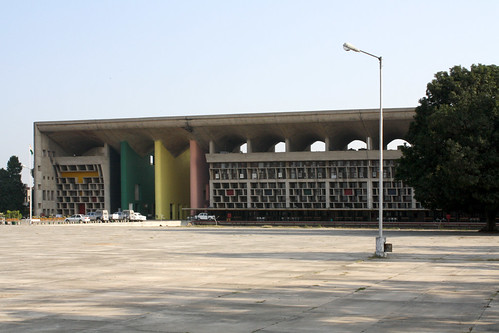Qantas loses high court bid to overturn ruling that it illegally outsourced 1,700 jobs
High Court #HighCourt

Qantas has lost its high court bid to overturn a ruling that it illegally outsourced 1,700 ground handler jobs.
On Wednesday the high court unanimously upheld a full federal court decision exposing the embattled airline to a mammoth compensation bill for laying off staff at 10 airports in November 2020.
The Transport Workers Union national secretary, Michael Kaine, told reporters in Canberra it will now seek “significant” compensation and penalties in the federal court for the “largest sacking found to be illegal” in Australian history.
In July 2021 the federal court ruled Qantas’s outsourcing of the workers was in part driven by a desire to avoid industrial action, which is a breach of the Fair Work Act.
The decision is a major win for the TWU, which was supported in the case by an intervention from workplace relations minister Tony Burke.
Ahead of the high court decision Kaine, said the outsourcing decision was part of outgoing chief executive Alan Joyce’s “spiteful management style” that had damaged the airline’s reputation.
The union cited complaints increasing by 70% in 2022 amid high cancellations, delays and lost baggage.
The TWU responded to the result by calling for a public apology from Qantas and for the chairman, Richard Goyder, and the entire board to be replaced by new directors, including a worker representative.
“Qantas workers have made history today,” Kaine said. “It has been three years and 20 days since Alan Joyce first announced the decision to outsource these workers, and they have not stopped fighting for a moment to ensure justice was served.
“The final act of this board should be to strip Alan Joyce of his bonuses and follow him out the door.
“The Joyce regime has been toppled, but the airline cannot achieve the reset necessary for its survival under the same board that resided over the largest case of illegal sackings in Australian corporate history. Richard Goyder cannot make it through another day as chair.”
In the majority judgment, chief justice Susan Kiefel and justices Stephen Gageler, Jacqueline Gleeson and Jayne Jagot said the meaning of the Act was “readily ascertainable”, rejecting Qantas’ claim it had not taken unlawful “adverse action” because workers did not yet have the right to take industrial action when they were sacked. “No such temporal confinement appears” in the law, they said.
They noted earlier court findings that although Qantas “had sound commercial reasons for the outsourcing decision”, it was also taken “to prevent the affected employees from exercising workplace rights to organise and engage in protected industrial action and to participate in bargaining”.
In submissions to the high court, the union had warned that overturning the federal court’s decision would create “uncertainty” about accessing workplace rights and water down protections against other forms of discrimination.
Qantas had claimed the outsourcing was a necessary financial measure that could save it $100m annually and reduce future spending on ground handling equipment such as tugs and baggage loaders.
In a statement Qantas said it “acknowledges and accepts” the high court decision.
“As we have said from the beginning, we deeply regret the personal impact the outsourcing decision had on all those affected and we sincerely apologise for that,” it said.
Qantas explained it took the outsourcing decision in August 2020 “when borders were closed, lockdowns were in place and no Covid vaccine existed” in a bid to “improve its ability to survive and ultimately recover”.
The Australian Council of Trade Unions secretary, Sally McManus, said that in addition to the high court verdict, the “court of public opinion” had turned on Qantas, which now needs to “restore respect” for its customers and workforce.
Qantas has been under scrutiny for failing to refund flight credits accrued during the pandemic, which is the subject of a class action, and allegedly cancelling flights as part of a strategy to hoard slots at major airports, for which the competition regulator is seeking penalties of $600m.
McManus and Kaine urged the Senate crossbench to pass Labor’s closing loopholes industrial relations bill, which McManus argued could stop sackings at their “source”, by requiring that workers of labour hire entities are paid the same as those on a workplace pay deal.